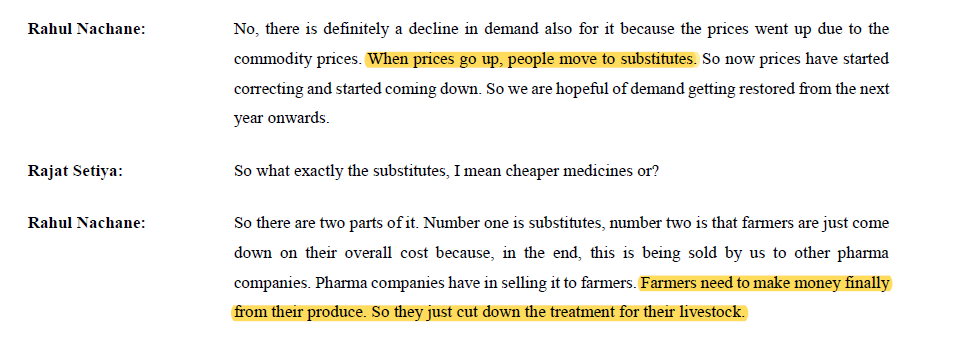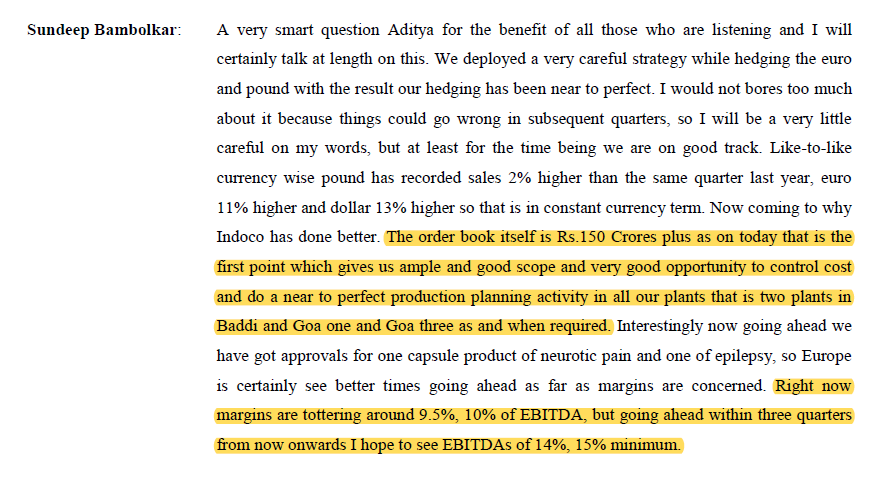
Reading #NGL Fine Chem’s latest concall, it is very apparent that while the management is very good, the competitive structure of the industry does not allow them to have any sort of pricing power.
Some snippets from the Q2 concall looked at through the lens of Porter’s 5 forces that tell us that the company will do good in the next few quarters as commodity prices stabilize. But they will be back here again the next time commodity prices increase.
Bargaining power of customers: The company can pass on cost increases with a lag. But when commodity prices come down, the decrease in price for their products is immediate. 

Threat of substitutes: The management has said that when prices for their products increase, the end customer will just shift to substitute products or just choose not treat the livestock 

Rivalry among competitors: They operate in a B2B model with no branding or product differentiation. So it is very easy for competitors to undercut your prices 

Threat of new entrants: The company operates in lesser regulated markets. This market is usually made up of many small and unorganized players as the costs to set up the manufacturing facilities is a fraction of what it is for the regulated markets.
This low cost makes it very easy for new players to enter, reducing overall margins.
Bargaining power of suppliers: The company is backward integrated and mostly only purchases basic commodities. So no particular supplier has much power over them.
Bargaining power of suppliers: The company is backward integrated and mostly only purchases basic commodities. So no particular supplier has much power over them.
However, they are not big enough either to be able to negotiate lower prices with their suppliers.
Therefore, the business model does not allow them to have any meaningful competitive advantage.
Therefore, the business model does not allow them to have any meaningful competitive advantage.
Micro Cap Club:
valueeducator.com/micro-cap-club/
valueeducator.com/micro-cap-club/
• • •
Missing some Tweet in this thread? You can try to
force a refresh













